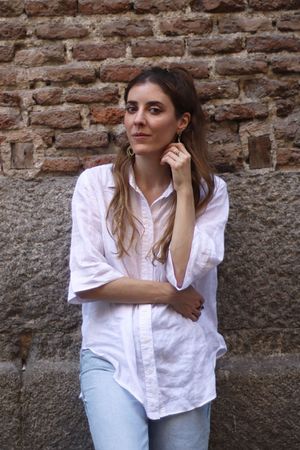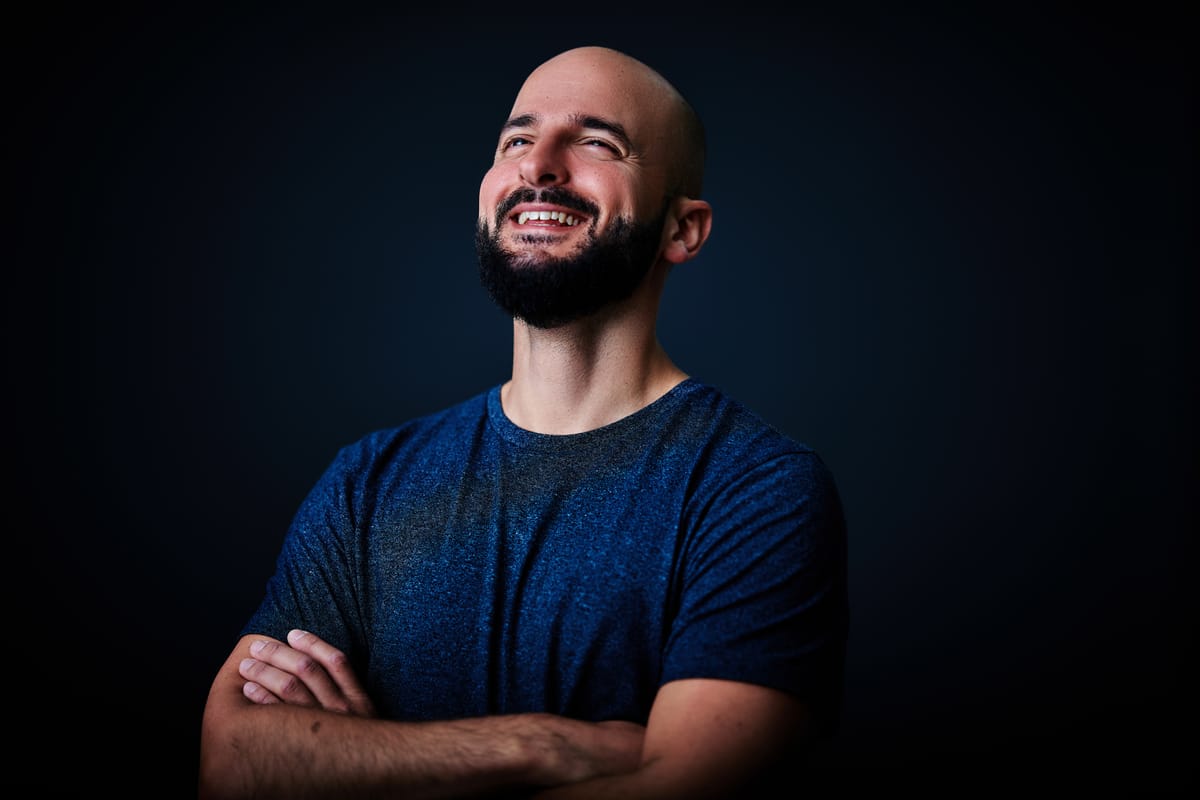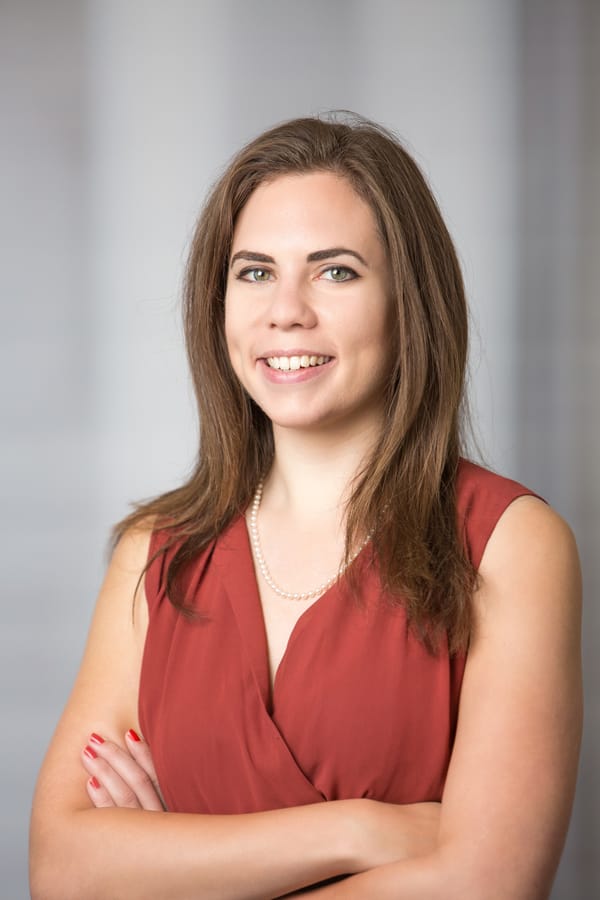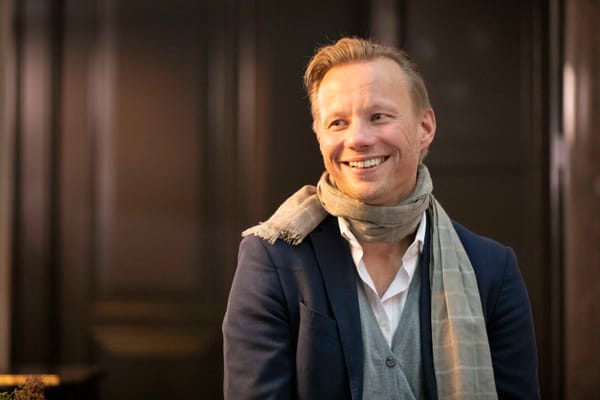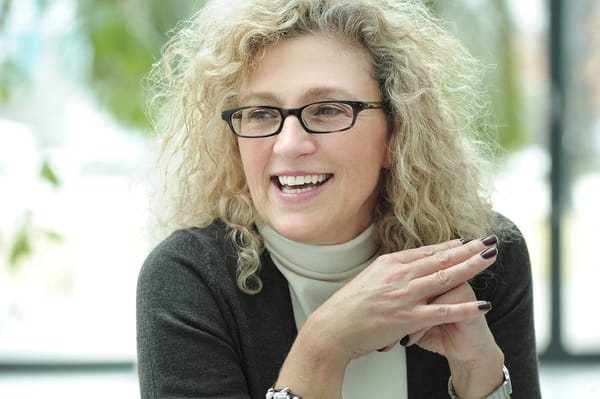Berlin, Germany
How many ideas were born over a couple of drinks?
In 2019, Yascha Roshani stepped into the Founder Institute's startup accelerator program in Berlin to get his this-started-over-drinks idea off the ground. Yascha is the founder of Honest & Rare, an online marketplace for craft food and beverages, catering to people hungry (and thirsty) for more than traditional, everyday supermarket products.
Identifying the problem in the market
Looking at his business today, you might never guess that Yascha has a sports management background, having earned his degree from the University of Leipzig in 2012.
Following his undergraduate studies, he pursued a Master of Arts at CBS Cologne Business School. Interestingly, Cologne (and James Bond movies) ignited his passion for drinks.
"When I lived in Cologne, I started getting interested in cocktails. And one of the first cocktails I was into was from the James Bond movie Casino Royale. It was the Vesper Martini, and I wanted to make the drink at home, but the ingredient I needed for that was Kina Lillet, which is now a mainstream drink. You can get it everywhere in Germany. But back then, I had to go to specialty stores to find it. So this was the trigger that made me move away from the standard supermarket drinks for my cocktails to more special stuff," Yascha recalls.
During his studies, Yascha also completed a semester abroad in London, where he discovered a craft beverage scene far more advanced than in Germany. In 2015, upon returning to Berlin, Yascha's interest in craft beer and homebrewed lemonade led him to experiment with diverse flavors, brewing his own beers and drinks at home.
"After that, I started to make liquors at home; some of them are still on the shelf. And then I started roasting coffee in the frying pan, which didn't taste too good, but it actually tasted like coffee and smelled like coffee, and I gave it to the two people that I thought would not hate me afterwards," he jokes.
If you were tasked with characterizing Yascha, you'd point first to his enthusiasm for different cultures and all things out of the ordinary. Besides living in Germany and England, he studied for a semester abroad in Spain and worked in Canada.
Never one to choose the same dish at a restaurant, he always found it dull to visit regular supermarkets; when it came to gastronomy, Yascha's favorite eccentric foods and drinks seemed complicated to get a hold of, especially in Germany: "I say especially in Germany because in Germany we have a really slow change of assortments going on. So you can go back in time five years, go to the supermarket, and compare that to today, and you would see that, to be honest, about 70 to 80% of the stuff is still the same."
Lack of variety and innovation becomes a problem when people primarily rely on supermarkets to obtain food and drinks, as the supermarkets often dictate consumer trends. This tendency may be what has mainly contributed to the decline Yascha observes in the number of craft beverage stores, coffee shops, and wineries.
Yascha elaborates, "At least in Germany, 80% of all the food and drinks we buy in retail stores, like supermarkets. So the other 20% is a little bit online, a little bit directly from the manufacturer, some specialty stores, and so on. But 80% is a lot.
"And so that means that basically, the supermarkets are dictating what you buy because when you go to buy the groceries. You see what they have, you buy whatever you see. So this cycle will never stop because as long as you buy from them, they will have the revenue and, subsequently, the profits."
Getting his idea off the ground
The culinary landscape in Germany and Yascha's then-newly discovered passion for experimenting with taste laid the ideal groundwork for what would follow. He knew the problem he wanted to solve; all that remained was making it happen.
"We don't solve the world's problems, but we have some people I think need support. For example, all the producers, the small brands that do all these cool products but don't have the big marketing money, don't have the online marketing expertise to have better reach and access to their target audience. So we have those, and we also have those people that are looking for good food and drinks."
Despite the confidence he gained from his business studies, Yascha recognized the need for an extra nudge to get his business off the ground. That's when he enrolled in the Founder Institute's startup accelerator program.
"What I think I didn't know back then was how much it would actually help me because I studied business, I have a business background, and I would say I was always very good at business. Today, I also teach business and some other lectures at university, and so I think I was always very good in the field. But what they don't teach you at business university is how to start something from scratch, which is a big problem," he said.
For Yascha, one of the fundamental learnings at Founder Institute was how to get a product off the ground — something he identifies as a major challenge and a significant knowledge gap.
The Founder Institute focuses on imparting skills related to testing and getting products to market relatively quickly. While founders might get caught up in figuring out how to launch a product and aspire to acquire ample funding, loans, and investments, Yascha emphasizes the importance of starting with what you have and building from there: "I learned you just have to do it with the little funds that you have and build the product; build an MVP (Minimum Viable Product) and start learning and experimenting from there."
"It's the mindset of testing. If you have [an approach] to validate your business idea, and if you have indication that it might be a good idea to follow up on, then just get the product out, no matter how ugly and bad it is, because from there you will have the motivation to keep on going. Because if you already have a product, it will be easier for you to to gain relationships with business partners, with potential co-founders, with potential customers. And I'm saying that because of the observation I have from other founders that I also met at that time," Yascha says.
Another aspect Yascha highlights from his time at Founder Institute is the network. When he speaks of networking, he doesn't just refer to forging business connections that move you forward and learning from others' expertise. Access to mentors, lecturers, and industry experts allowed him to gain insights into all the integral facets of building a business, empowering him to tackle these aspects himself.
"I learned from experienced founders that you have to take on all tasks yourself. Through the various resources on the internet and technology in general, you can do so much more alone than you initially thought."
Founders may lack the funds and time to find or pay co-workers or co-founders when starting out. But interestingly enough, it was during the accelerator that Yascha crossed paths with his co-founder and CTO, Aleksandr Bogdanov, who, at the time, was working on a cocktail robot.
Apart from Aleksandr and Yascha, out of the initial 50 participants in the program, only ten individuals ultimately graduated. "I think one of the main reasons is, you know, these statistics where it is said 90% or 80% or 8 out of 10 startups fail. I think failing means that you tried something, and it didn't work out. In my observation, in most of those cases, they actually stopped working on the product. And the other reason is that it took them too long to bring the product to the market," Yascha suggests.
Starting small to grow big
Yascha participated in the Founder Institute program from January to April 2019. In March of that year, he officially introduced Honest & Rare following his original concept: an online marketplace for drinks selling directly from producer or merchant to customer.
From the beginning of the program up to the launch, his mission has been crystal clear: "I think that there's so [much] cool stuff that needs to be tried out, that needs to be tasted, and this is what we do."
Following the advice to reduce the time-to-market and start with what he had, Yascha set out to find vendors and acquire the products to sell on the platform. He attended trade fairs and conventions, met with several merchants and liquor producers, and managed to seal deals with around 20 vendors.
Honest & Rare launched with an initial offering of 100 products. He successfully expanded the product catalog over time through strategic growth and an understanding of market demands. "Since there was no product or marketplace yet to show, it is through direct sales in person or via phone you acquire your first platform sellers. We were developing the platform parallel to acquiring vendors. And speed to launch was important. We had 100 products when we were ready to launch and scaled it to 7,500 products today," he recalls.
Though it was Yascha's first venture, he was well trained in pitching ideas; he attributes his most valuable lessons to his experience working in fundraising at We Planet Earth in Canada: "I did fundraising for charities. So you go door to door. You knock door to door, and you pitch people on the spot. Just talk to strangers on the spot and be potentially rejected. So, [using these skills], I acquired those 100 products in the beginning and from there scaled to today."
Navigating the culinary space, Yascha encountered a few challenges. Though not direct competitors, marketplaces like Honest & Rare are swimming amongst dominant players in the market (primarily supermarkets), which can afford to sell at lower prices and maintain healthy profit margins. Yet, despite this scenario, the future looks consistently promising for online marketplaces.
Yascha's enthusiastic about the opportunity. "More and more people buy food and drinks online, and, since 2014 or 2015, it has been the fastest growing market every year, in Germany at least. And the pandemic years, obviously, were helpful for that online industry as well. I think in 2020 there was an increase of 70%, and not only the immediate groceries, it's actually the stuff that we also sell that almost doubled," he says.
Moreover, Yascha notes a discernable shift in buying behaviors, with an increasing preference for high-quality goods and a growing inclination towards sustainable local produce.
"You observe many of those big brands and supermarkets, they are not suffering, but they are seeing the challenges of not changing up how they do things. They try to make new varieties — new product lines, things that resemble a craft product — instead of just a standard mass-produced thing that they have been selling for decades."
On October 1, 2023, Honest & Rare achieved another notable milestone by expanding its business to include food sales: "We planned to be a food and drinks platform from the beginning. The reason to start with drinks was just a strategic focus. Instead of being stuck in the middle, we first became a stronghold for drinks, which has hundreds of different categories. Now that we are Germany's biggest specialty drinks provider, we started with food products as well."
Looking ahead, Yascha envisions becoming the ultimate stop for people seeking premium specialty food and beverages: "The criteria that we have is the products need to be independent, and they need to be hard to obtain. And for this specific niche, I mean, it's a very big niche because we're talking about the food and drinks industry, so it's still a multi-billion market, but for that niche, we want to be the best place for customers to find their special delights.
"We see ourselves as a bridge between customers and everyone offering anything in the field of indulgence."
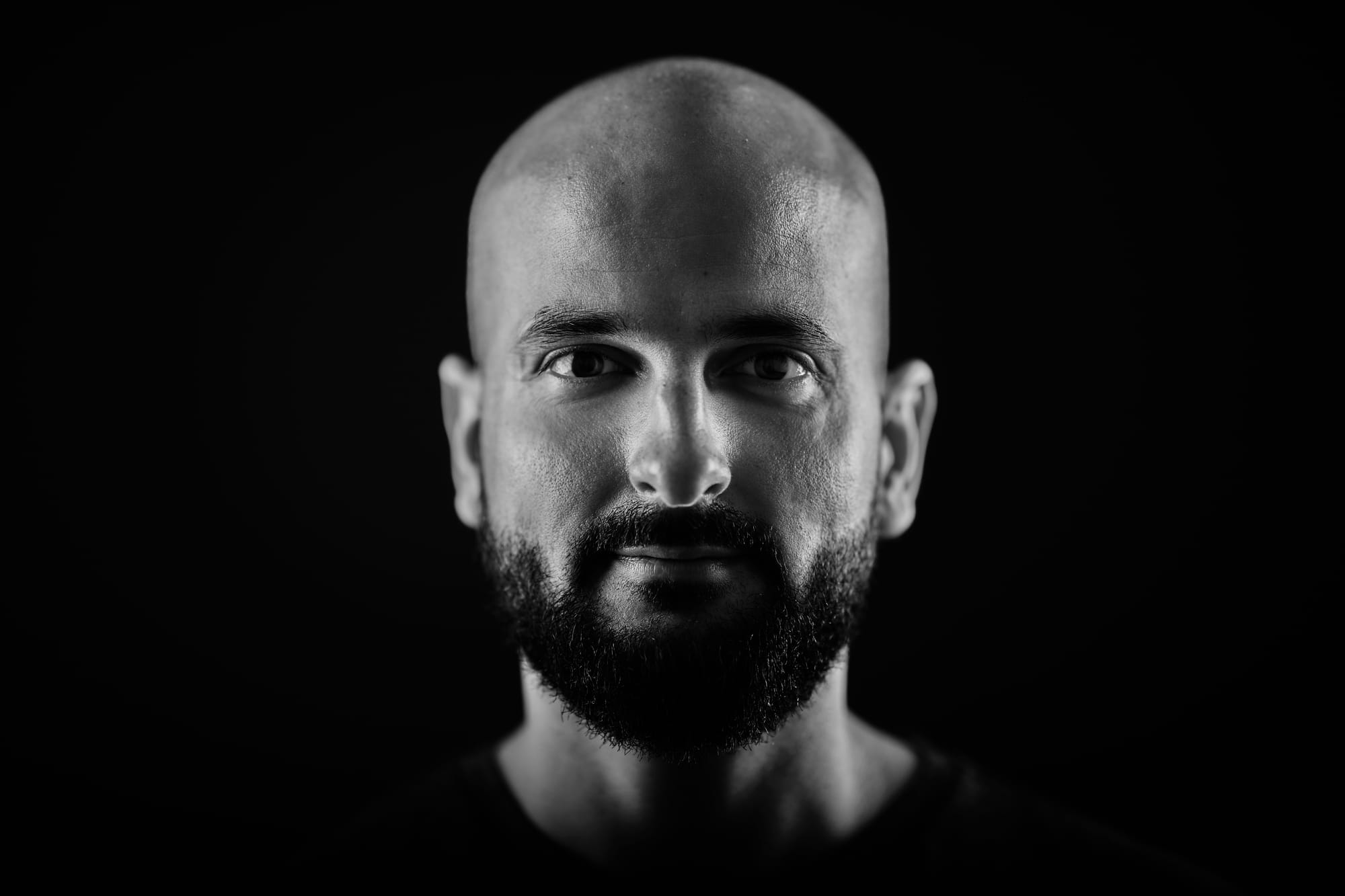
Lessons in self-reliance
For Yascha, his entrepreneurial journey, particularly his time at the Founder Institute accelerator program, is a crucial reminder of the importance of self-reliance and learning to trust his capabilities instead of constantly seeking external expertise.
"What changed about myself actually is coming back to the attitude of just doing the things that you need to do. Be prepared and be a fast learner, don't rely on anyone else to take care of those things for you," he recommends.
For early-stage entrepreneurs considering enrollment in an accelerator program, Yascha offers valuable advice: prioritize working on your business model beforehand.
While accelerator programs are designed to guide you through refining and pivoting if necessary, Yascha accentuates the importance of having a well-defined plan, detailing all the steps required to achieve your goals, and following them, no matter how minor they may seem.
"None of the steps can be skipped, no matter how small. Planning fails when you skip important actions. A good plan leads to good execution, no matter whether you plan a party, a wedding, or a business. The more you think of the detailed steps, the less you will be surprised by things you didn't account for," he stresses.
"I think one of the best practices is to study facts and information about the past and present and then start imagining the future. Everything in the future is derived from the past, so it's possible to try to foresee what the future will bring to a certain extent. Studying as much history and data, and thus generating a contextual understanding of your market, society, and the world, is key to being able to formulate hypotheses about the future."
A good plan will optimize your time during an accelerator program and help you extract the most value. Yascha decided to join the Founder Institute at a stage where he was more advanced in his journey, enabling him to soak in all the learnings and apply them most effectively.
Reflecting further on his experience, Yascha says, "One of the things that accelerators are there to do for you is to help you pivot to the right business model. From my experience, these programs are very short.
"Time is flying, obviously, and there's so much you need to do in terms of product development, team development, customer development, marketing, and brand development, all the basic legal fundamentals that you need to map out. And also working on the right business model during that time, I think it's a bit too late."
It is well-known that the startup path is filled with everyday challenges. For Yascha, it all boils down to choosing something you love and having fun. And always, always keep going: "If you don't have the energy to keep on going, then I think you should not do it because we only have this one life and it should be something that we enjoy."
